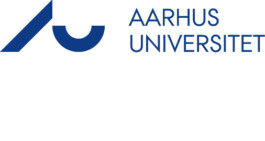Inequalities and Quantification: Entangled Histories from Ghana, 1953-1966


Webinar with Gerardo Serra (University of Manchester)
The histories of inequality and quantification are structurally conjoined. The Gini coefficient, the Lorenz curve, or Branko Milanovic’s estimates (among others) have provided heuristic tools that make inequality visible, and promote its emergence and consolidation as a self-contained concept. But how, and under what conditions, do forms of quantification with different and seemingly disconnected goals contribute to the creation of conceptual repertoires and political cultures of inequality?
The talk will explore this issue by analysing three case studies from colonial and early postcolonial Ghana: 1950s household budget surveys, the 1960 population census, and the Seven-Year Plan for National Reconstruction and Development (1964-1966). In the time period under discussion, Ghana saw a significant expansion and diversification in the construction of economic and statistical knowledge, and presents a fascinating laboratory to unpack the political ramifications of different ways of knowing about the economy and society in a colonial and postcolonial context.
By interrogating the iconographies and calculative practices in which these forms of quantification were embedded, the talk has two main aims. Firstly, it attempts to rescue and make visible alternative genealogies of inequality in the history of quantification. Secondly, it aims to document the surprising – and often unintended - ways in which quantification shaped epistemic and political cultures in Ghana. From a methodological standpoint, this approach calls for a more holistic appreciation of the political nature of social and economic statistics.
Gerardo Serra is a Presidential Fellow in Economic Cultures at the University of Manchester. His research focuses on the history of political and economic thought and the historical sociology of quantification in 20th century West Africa. Following a PhD in Economic History from the London School of Economics, he has been lecturer at the University of Sussex and research fellow at the Nantes Institute for Advanced Studies. His PhD thesis was awarded the 2015 Joseph Dorfman best dissertation prize by the History of Economics Society. His work has appeared in outlets like 'Comparative Studies in Society and History', 'The Journal of African History', and 'History of Political Economy'. He is currently working on his first monograph, entitled ‘Marching with the Times: Economic Knowledge and Political Imagination in Ghana’.
⬤ May 25th 2022, 14.00-15.30 CEST. To join the webinar, please send us an email with your name and affiliation to global-inequality@cas.au.dk no later than May 25th at 13.00 (CEST).
Inequalities and Quantification: Entangled Histories from Ghana, 1953-1966

Webinar with Gerardo Serra (University of Manchester)
The histories of inequality and quantification are structurally conjoined. The Gini coefficient, the Lorenz curve, or Branko Milanovic’s estimates (among others) have provided heuristic tools that make inequality visible, and promote its emergence and consolidation as a self-contained concept. But how, and under what conditions, do forms of quantification with different and seemingly disconnected goals contribute to the creation of conceptual repertoires and political cultures of inequality?
The talk will explore this issue by analysing three case studies from colonial and early postcolonial Ghana: 1950s household budget surveys, the 1960 population census, and the Seven-Year Plan for National Reconstruction and Development (1964-1966). In the time period under discussion, Ghana saw a significant expansion and diversification in the construction of economic and statistical knowledge, and presents a fascinating laboratory to unpack the political ramifications of different ways of knowing about the economy and society in a colonial and postcolonial context.
By interrogating the iconographies and calculative practices in which these forms of quantification were embedded, the talk has two main aims. Firstly, it attempts to rescue and make visible alternative genealogies of inequality in the history of quantification. Secondly, it aims to document the surprising – and often unintended - ways in which quantification shaped epistemic and political cultures in Ghana. From a methodological standpoint, this approach calls for a more holistic appreciation of the political nature of social and economic statistics.
Gerardo Serra is a Presidential Fellow in Economic Cultures at the University of Manchester. His research focuses on the history of political and economic thought and the historical sociology of quantification in 20th century West Africa. Following a PhD in Economic History from the London School of Economics, he has been lecturer at the University of Sussex and research fellow at the Nantes Institute for Advanced Studies. His PhD thesis was awarded the 2015 Joseph Dorfman best dissertation prize by the History of Economics Society. His work has appeared in outlets like 'Comparative Studies in Society and History', 'The Journal of African History', and 'History of Political Economy'. He is currently working on his first monograph, entitled ‘Marching with the Times: Economic Knowledge and Political Imagination in Ghana’.

